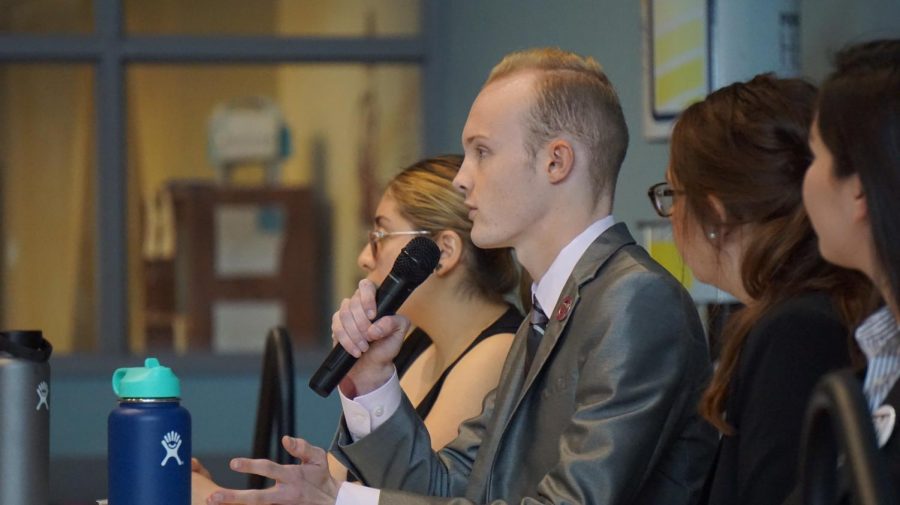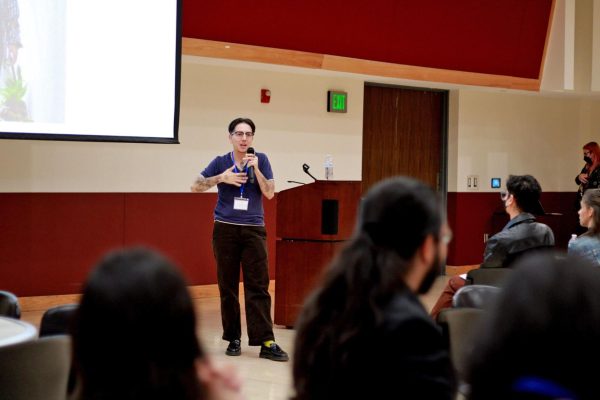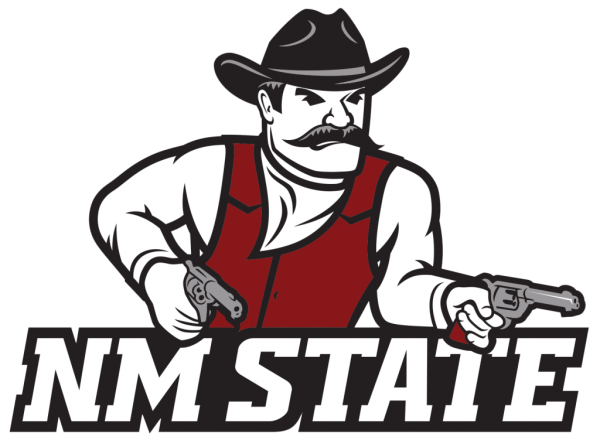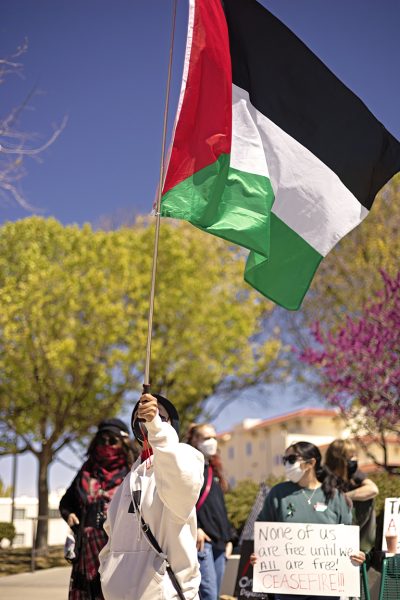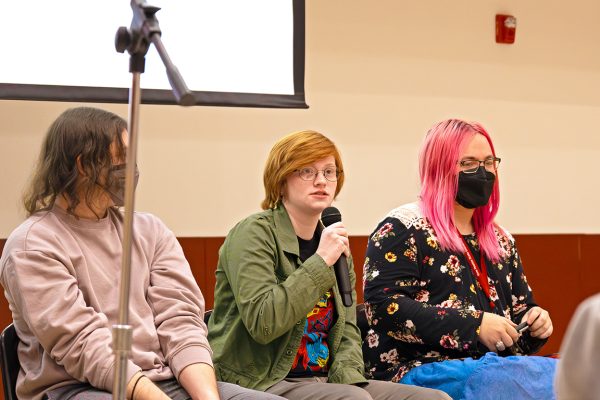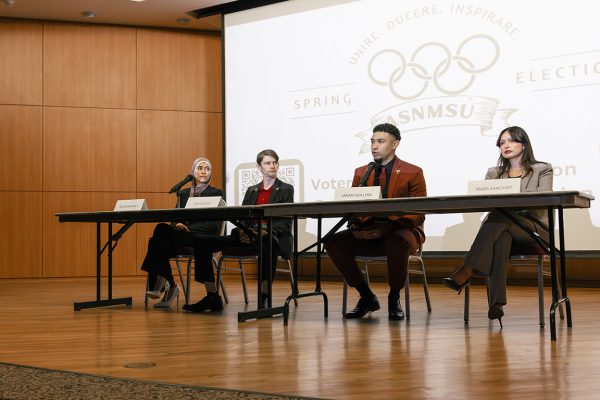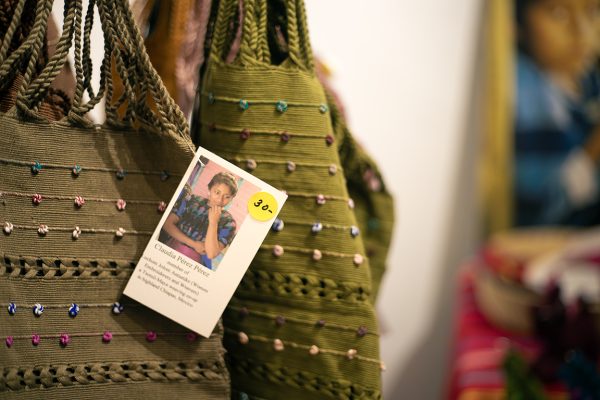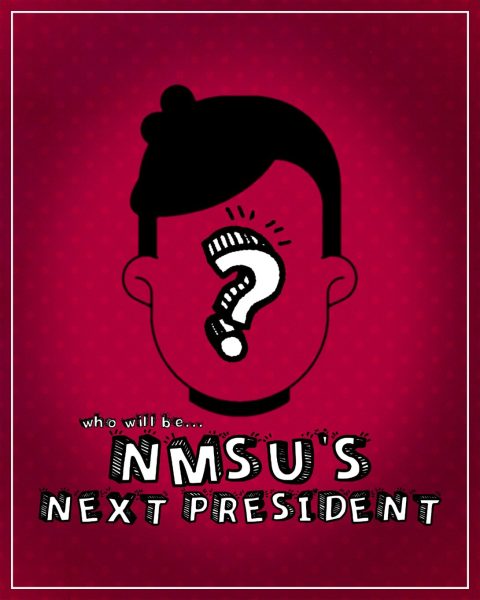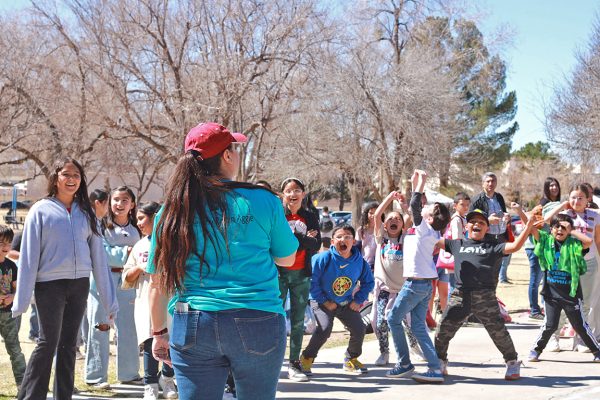ASNMSU passes resolution for Indigenous People’s Day after heated debate
The Associated Students of New Mexico State University will recognize Indigenous People’s Day on Oct. 8. Following their meeting on Oct. 4, which took place at Corbett Center Senate Chambers, the resolution took several hours to pass due to discussion about the wording of the bill.
The resolution was first introduced Sept. 18 by Reyaun Francisco.
Francisco is a senator for the College of Arts and Sciences and is Native American of the Navajo Nation. He has been involved with the Native American Business Student Association and Rotaract.
“This resolution aims to ensure that we recognize our indigenous voices on this campus,” Francisco said.
The senator said that Indigenous people are often overlooked and he urged the Senate to stand in solidarity with them and allow them to feel as though they are in a safe environment. He said it is important to recognize the Indigenous in society and he said this resolution could play a part in representing students on campus.
Director of Chicano programs, Laura Gutiérrez-Spencer, Ph.D., was also present at the senate meeting. She spoke during forum in regards to the resolution.
“The fact that students and others may squirm and feel uncomfortable when hearing or stating the truth, is okay, it’s more than okay. It’s more than okay,” Spencer said, “because growth and learning come from discomfort.”
Gutiérrez-Spencer was just one of many speakers that were present in support of the bill. Donald Pepion, professor in cultural anthropology also spoke during a recess. He prepared a written statement to read during the meeting.
In his letter, Pepion said it is a wonderful action to recognize the Indigenous people in our country.
“I think this resolution can send an important message to heal all of our people from past indiscretions,” Pepion said.
Several other Native American students spoke during recess in addition to students from Black Programs standing in solidarity with their fellow classmates.
Although the resolution had been introduced two weeks prior, Francisco submitted a resolution just before 6:30 p.m. He said he had made changes to the wording and sentence structure.
“The previous resolution was not one that I approved of because it didn’t really represent the indigenous students at this campus,” Francisco said.
Ehtesham Shareef, President Pro-Tempore was wary of going forth with the resolution. He suggested tabling the resolution because he did not feel comfortable with rushing the piece of legislation with so many changes being made.
“Even if this resolution passes tonight, this will not reach the table of Board of Regents overnight. For this to happen, this will reach the Board of Regents after Columbus Day,” Shareef said.
Shareef said he supports Indigenous People’s Day, however, he felt that the Senate did not have enough time to look the new resolution over since it had been submitted so late.
The Senate decided to read over the original resolution that Francisco did not approve of, however, after disapproving changes so that it was of Francisco’s liking, the Senate decided to go on a 30 minute recess so the senators could read and discuss the resolution submitted during the senate meeting.
William Bradford, Director of Governmental Affairs, was strongly against the language of the resolution. He asked that the Senate tone down the language, particularly in areas that referenced the state government.
“We have not had a resolution that has such strong language being put through during the time I have been here,” Bradford said.
The original piece of legislation read as such:
“Whereas, the federal recognition of Columbus Day overlooks the atrocious acts, massacres, cultural genocide, enslavement, torture and has fallen short of listening to the outcries of the Indigenous peoples of the Latin Americas, United States and Canada.”
Francisco was persistent in keeping his wording.
“We have to call things what they are, regardless.” Francisco said. “We can’t say that an atrocious act was done, we have to say what that atrocious act was.”
While noting the historical importance of the language, Bradford said that he has worked closely with the state government and the language could affect relationships with NMSU and other organizations.
“It is important to take a stand on issues that matter, but we need to do so in a way that promotes the university’s continued position as a bi-partisan organization,” Bradford said.
Bradford said that the resolution was not feasible politically. He said he in no way is trying to silence the voices of the Indigenous, however, he said it was important to keep in mind that the words used have consequences.
“My concern is that if we push too hard on the rhetoric, instead of pushing more on the bill itself, and supporting the idea of it, it’s going to be hard for ASNMSU to be a strong voice for our students,” Bradford said.
Gaspard Mucundanyi, senator for the Graduate school, advocated for the language used in the resolution.
“These things really happened so I don’t see anything wrong with using what really happened to them because we’re afraid of losing funding,” Mucundanyi said. “We are here representing the students.”
The senators continued to discuss the resolution for an additional hour until finally coming to a compromise.
The final draft of part of the resolution is as follows:
“Whereas the recognition of Columbus Day fails to recognize historical realities, including atrocious acts, genocide, and institutional oppression, and has fallen short of listening to the outcries of the Indigenous peoples of the Latin Americas, United States, and Canada.”
The resolution will be sent to members of Congress, the mayor of Las Cruces and the Governor of New Mexico.
Indigenous Peoples Day will be recognized on Monday, Oct. 8 with several events taking place throughout the day on the NMSU campus.

Allysa Tellez is a junior at New Mexico State University. She is studying journalism and mass communications with a minor in government. She is originally...


